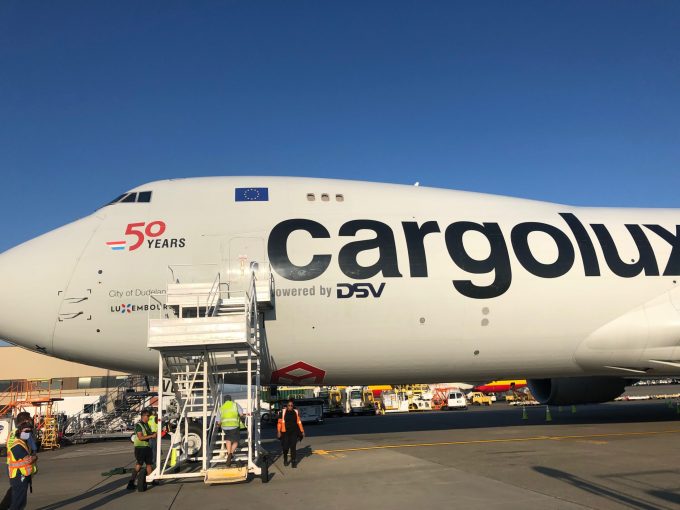Global airfreight volumes blooming as flower shipments take off
Global air cargo tonnages have taken off again after three consecutive weeks of subdued volumes, ...

Having this month launched a twice-weekly 777F charter route from Huntsville, Alabama to Doha, DSV is now planning to increase its flights from another second-tier US airport – in contrast to other forwarders keen to cut their airfreight capacity.
The Danish logistics operator this year started its own freighter flights with Cargolux from Phoenix-Mesa Airport in Arizona – a strategic move designed to provide direct service in the US state’s burgeoning semiconductor and electric vehicle sectors, and to avoid congestion at major air cargo hubs.
“We operate a scheduled flight once a week out of Luxembourg to Mesa, which then continues to Los Angeles. For now, this is one-way only,” a spokesperson for DSV told The Loadstar.
“We anticipate an increase to twice-weekly flights in Q1 24, as we’ll be seeing increased activity with several semiconductor fabrication laboratories. We also plan to introduce return flights from Mesa to Europe in Q1, via Huntsville and Chicago.”
In March this year, DSV announced the purchase of US-based transport and logistics companies S&M Moving Systems West and Global Diversity Logistics to “strengthen DSV’s position within the semiconductor industry, align with its new Phoenix-Mesa gateway airport operations and support growing cross-border services to Latin America”.
The Mexico City-Huntsville-Luxembourg-Doha route “will be serving all industrial verticals, but will be particularly relevant to our oil & gas, automotive and pharma customers”, the spokesperson added.
At a time when some industry sources have saidcurrent weak demand in the air cargo market could lead to pressure on forwarders to suspend regular charters, DSV is demonstrating the contrary.
“During the pandemic, all commodities needed capacity at whatever price the market was dictating. Those days are over, and the appreciation for reliability in the air and on the ground has vanished. We learned some early lessons from Panalpina [acquired by DSV in 2019] and have tweaked our operating model and maintained our common goal to grow our charter services,” the spokesperson noted.
“We have only reduced a few pandemic-related routes earlier this year. We have connected Asia, via Hong Kong, Vietnam and Korea, to the US and Latin America with three flights weekly into Huntsville and Miami, with tail-to-tail connections to Brazil.”
The spokesperson added: “We operate three weekly flights, with 747Fs, from Hong Kong to Madrid, Liege and Budapest and continue our twice-weekly flights from Luxembourg to Shanghai and back. In addition to the core routes, we operate multiple one-way routes from Liege and Luxembourg.”
It is a different tale for another major air freight forwarder, Geodis, which has reduced flights on its regular charter network
“Geodis invested in its own airfreight capacity during the pandemic to provide capacity that had been severely constrained by the shortfall in passenger flights. Our own-operated aircraft enabled us to set up weekly rotations betweenthe European, Asian and American continents,” a spokesperson told The Loadstar.
“The more recent decline in demand and the return of passenger flights led us to review this strategy. While our bi-weekly services between Hong Kong, Shanghai and Mexico remain, we have suspended flights between Asia, Europe and the US. The aircraft previously used on these services is now dedicated to (ad hoc) charter flights and mid-term lease operations.”
Flexport, meanwhile, which has three aircraft with Atlas Air, one of which was recently painted in the company’s livery, has expressed concern over the cost. CEO Ryan Petersen noted on Twitter/X: “Will be embarrassing if we lose money on this giant plane with our logo on it. Please tell your friends in fast fashion and electronics industry that Flexport does air freight, they should try us.”
Comment on this article